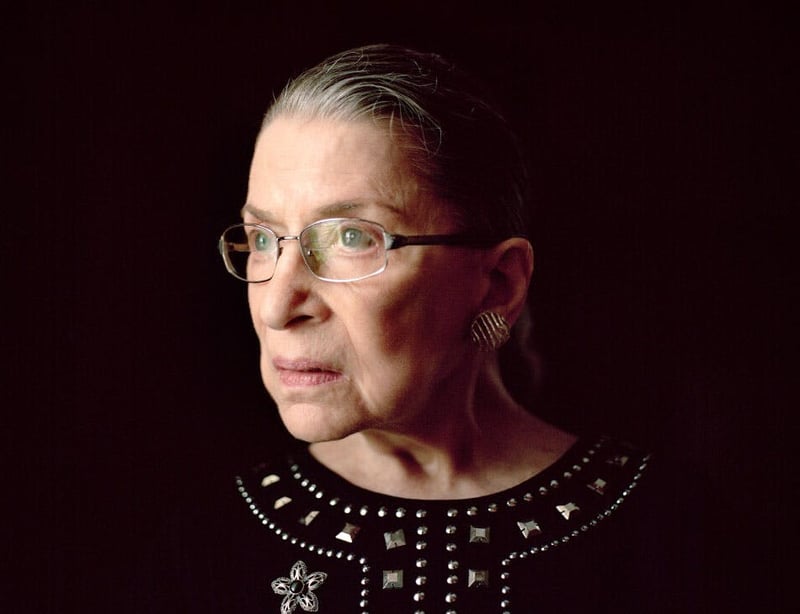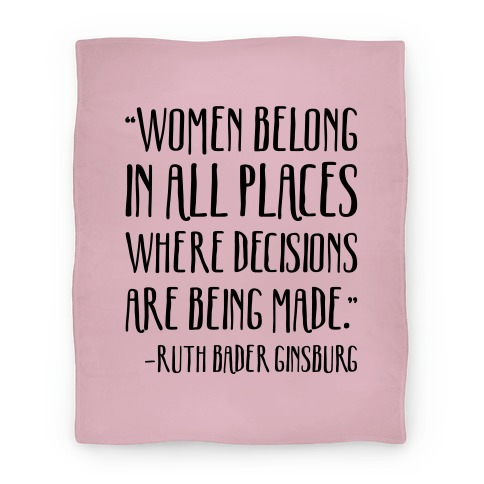Photo courtesy of Star Tribune
2020 was hit with another blow on Friday with the death of Supreme Court Justice Ruth Bader Ginsburg. This one hit especially hard for me as she is one of my personal heroes. As a mother raising two daughters, women like Justice Ginsburg have been a beacon of hope and an inspiration. She represents the relentless pursuit of equality and fairness in a world that keeps challenging these ideals. Her fight started many years before she was appointed to the highest Court in the nation (the second woman ever) in 1993. It was her work as a lawyer before that that made changes that will affect generations of women and all people to come. Even though she is no longer here, her work will live on. If she would have lived to 100 years old... it still wouldn't have been long enough.
As all of the tributes and social media posts flooded my feed Friday night, there was one that really stopped me in my tracks. It listed some of the changes she had a direct hand in pioneering for women in her lifetime; one was a law allowing women to open a bank account without her husband's permission. I had to look this up.
History of Women in Banking
As I mentioned, it was the work before she was on the Supreme Court that had a significant impact on history. She changed the course of American law as a lawyer, and founder and general counsel of the ACLU's Women's Rights Project in 1972. By 1974 the project had participated in close to 300 gender discrimination cases nationwide. She personally argued six gender discrimination cases (before an all-male supreme court) winning five.
The first was Reed vs. Reed (1971). This was the case where a young Idaho boy died and his father was automatically awarded his estate because he was a man. Even though the parents were separated and the mother made the request. She won that case and extended the Equal Protection Clause of the 14th amendment to women, barring laws that discriminated by sex.
In the 1960s, women gained the right to open a bank account, however, when RGB argued that first case in 1971, many banks still would not issue women credit cards or allow them to open checking accounts without their husband's permission. Not only that, women couldn't obtain a mortgage or get a business loan without a male co-signer.
There were other cases between 1971 and 1976 that forced laws to change nationwide. In 1974, the Equal Credit Opportunity Act was passed which was supposed to prohibit credit discrimination on the basis of gender. All of these laws that codified men as the breadwinners and beneficiaries and women as dependents were declared unconstitutional in those five years. By the end, her work changed the face of American families, empowered women, and expanded the possibilities for us. It is impossible to overstate their impact.
Women in Business Today
Fast forward to today. As a member of the Security Bank team I work with some incredible people. Both men and women. There was a moment that stood out as I reflect on how far we have come in banking (let alone that I can even work outside the home as a woman, but that's a whole other story) thanks to Justice Ginsburg. When we were implementing a new tech platform, a new product for us and ahead of it's time for Community Banks, we came together to make it available and ready to use. We met as a committee and from coding to marketing we were able to get this new product live in a few short months. I realized after one of our meetings, the five people in the room who made this happen were Julie, Athina, Lynn, Jackie (who was recently nominated to the Board of Directors of the ICBM) and I. All women.

It doesn't matter if you are liberal, moderate or conservative... all women stand on RBG's shoulders. Her tenacity and constant pursuit for equality changed the world for me, my daughters and generations to come. Rest in peace your Honor. Thank you for your service to this country. We will continue your work. I promise.





